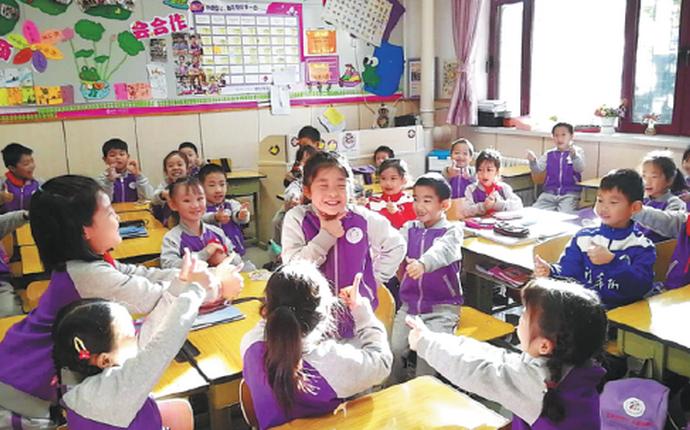Lessons for life


Positive education methods boost students' academic performance and well-being, experts say
When some Chinese schools first began to introduce the concept of positive education, many parents feared that the programs would sacrifice academic rigor. However, research from China and around the world shows that programs to teach productive character traits and virtues, including curiosity, optimism, leadership, gratitude, teamwork, grit, resilience and long-term planning, raise not only life satisfaction, but also the test scores of students.
"Some people misunderstand the concept of positive education," said Zhao Yukun, administrative director of the Positive Psychology Research Center at Tsinghua University. "They think it aims to make the kids as happy as possible. This is wrong. The only way you could do that is to indulge them, to let them follow their own wills. But this will not give them sustainable happiness. We are trying to develop character skills that improve long-term well-being."
Zhao said positive psychology, upon which positive education is based, "aims for something beyond your subjective feelings. You still feel good, but you also do something. You achieve something. You succeed and, more important, you have a moral compass. You pursue the meaning of your life. You are trying to make a contribution to the world."
A positive education curriculum that is being tested at the elementary school affiliated with Tsinghua University in Beijing integrates key character-building goals through classes and activities.
Zhang Huayu, vice-principal of the school, said: "In the first grade, we try to improve social behavior. For example, when they are playing soccer, we are primarily asking them to be a good audience or a good participant in the game.
"In the second grade, the character strength we are trying to develop is called negotiation and collaboration. We are trying, for example, to ask kids to resolve conflicts on a team."
Zhang said that in the third grade, "the emphasis is on self-discipline and improvement. We ask the kids to actively prepare for a soccer game. Children should force themselves to do something they think they cannot do, like run every morning.
"In the fourth grade, we talk about honesty and integrity. Fifth grade focuses on responsibility. Sixth grade concentrates on respect and gratitude," she said.
Liu Lipin, secretary of the Party committee of the education bureau of Qingyang district of Chengdu, the capital of Southwest China's Sichuan province, has concluded that positive education is needed in China's schools.
"The schools where we tried positive education are the best schools in Chengdu. They performed pretty well in the college entrance exam, but there are also serious problems. Teachers are exhausted, and students feel tired or don't like to study," Liu said.
- Action taken over Chongqing Gas Group overcharging
- Xi: Crucial role for new PLA force
- Obesity, myopia growing issues among youth
- Shanghai Coffee Culture Festival celebrates local coffee culture
- Developing Cyberspace Force crucial for network protection
- Thunderstorm delays flights at Guangzhou Baiyun International Airport



































